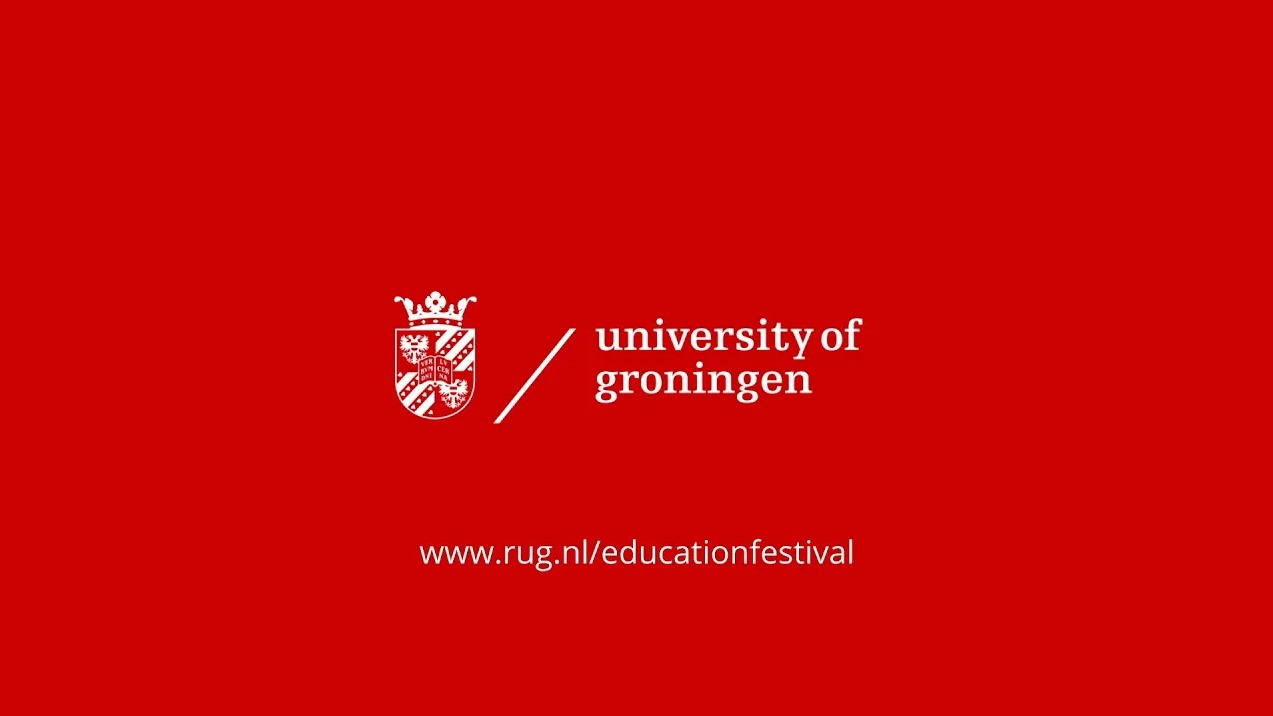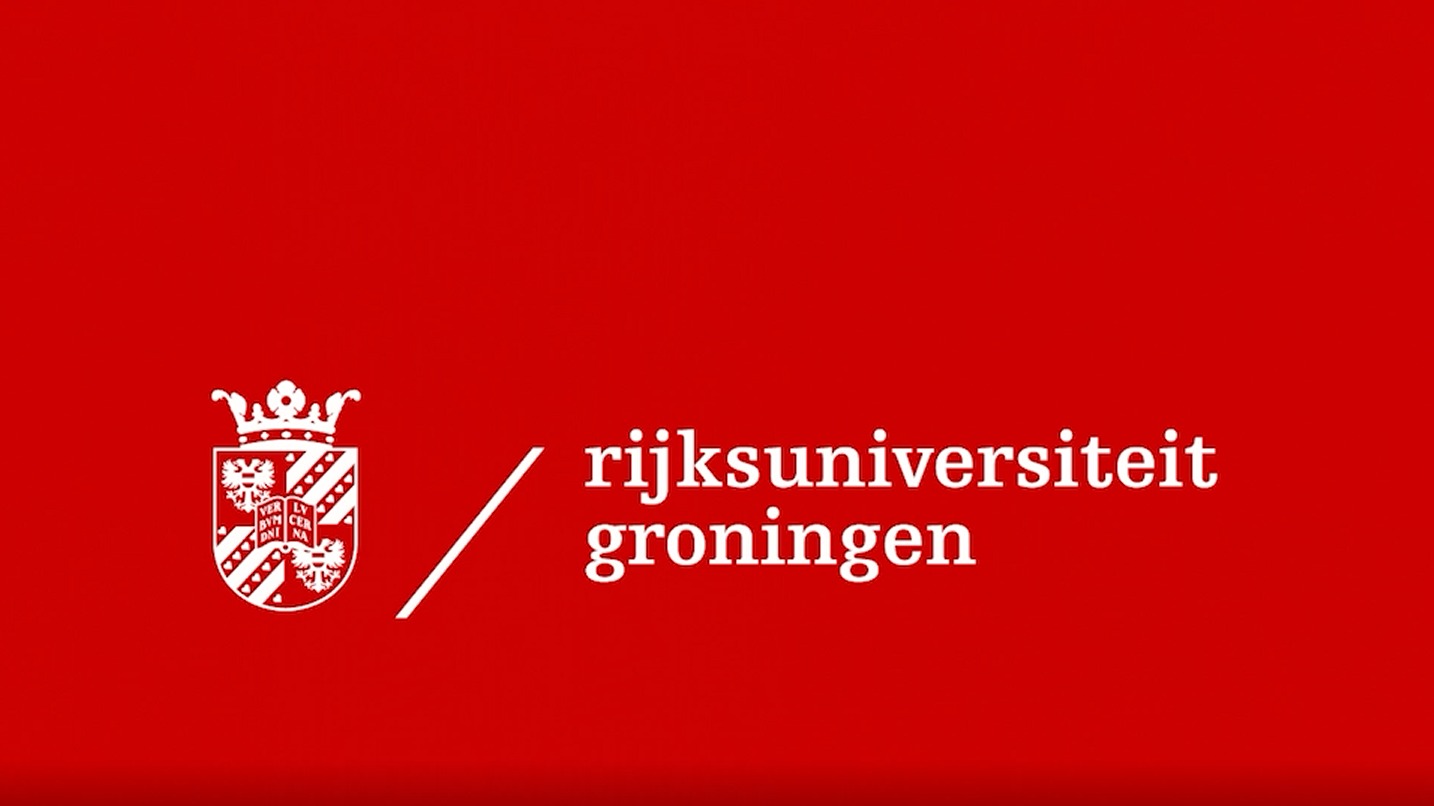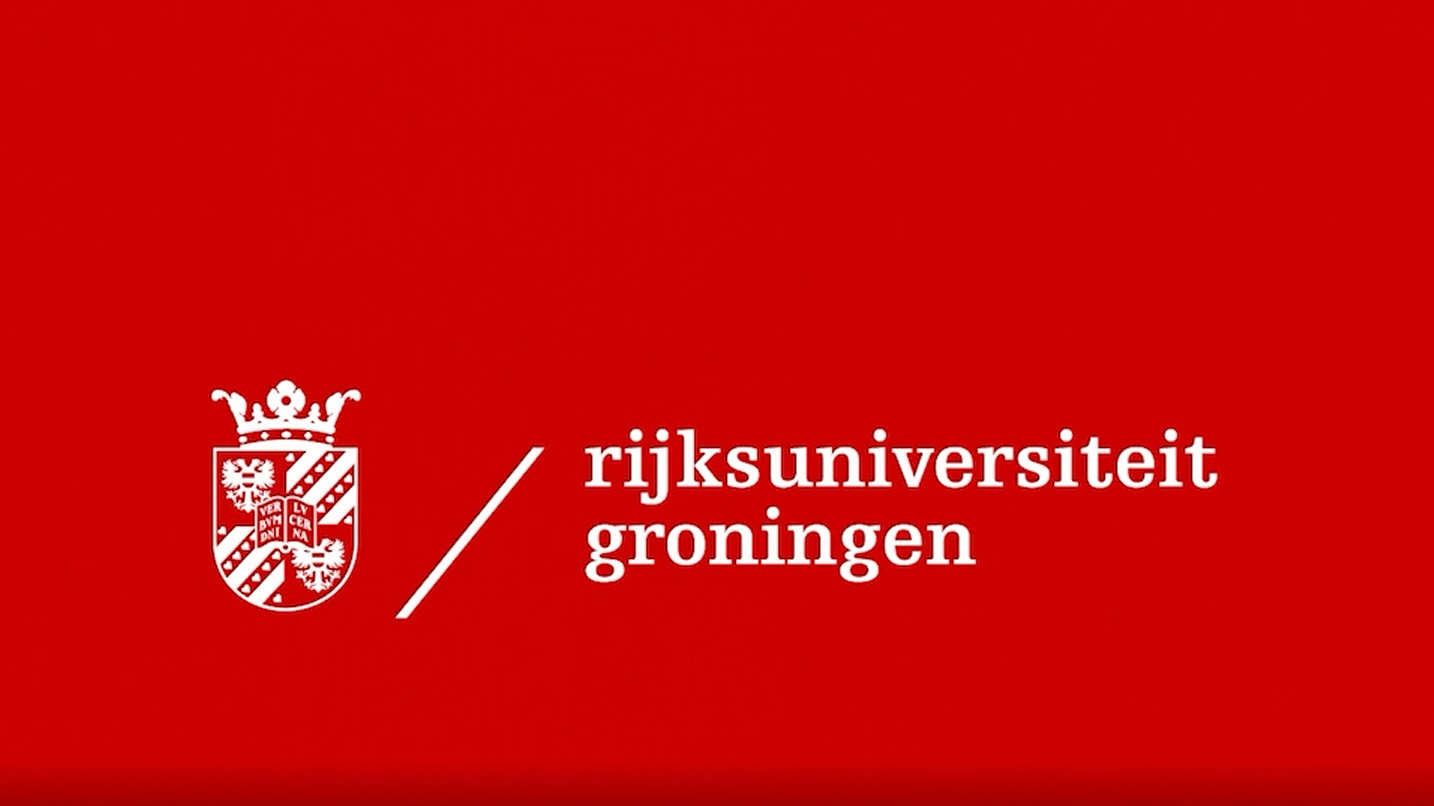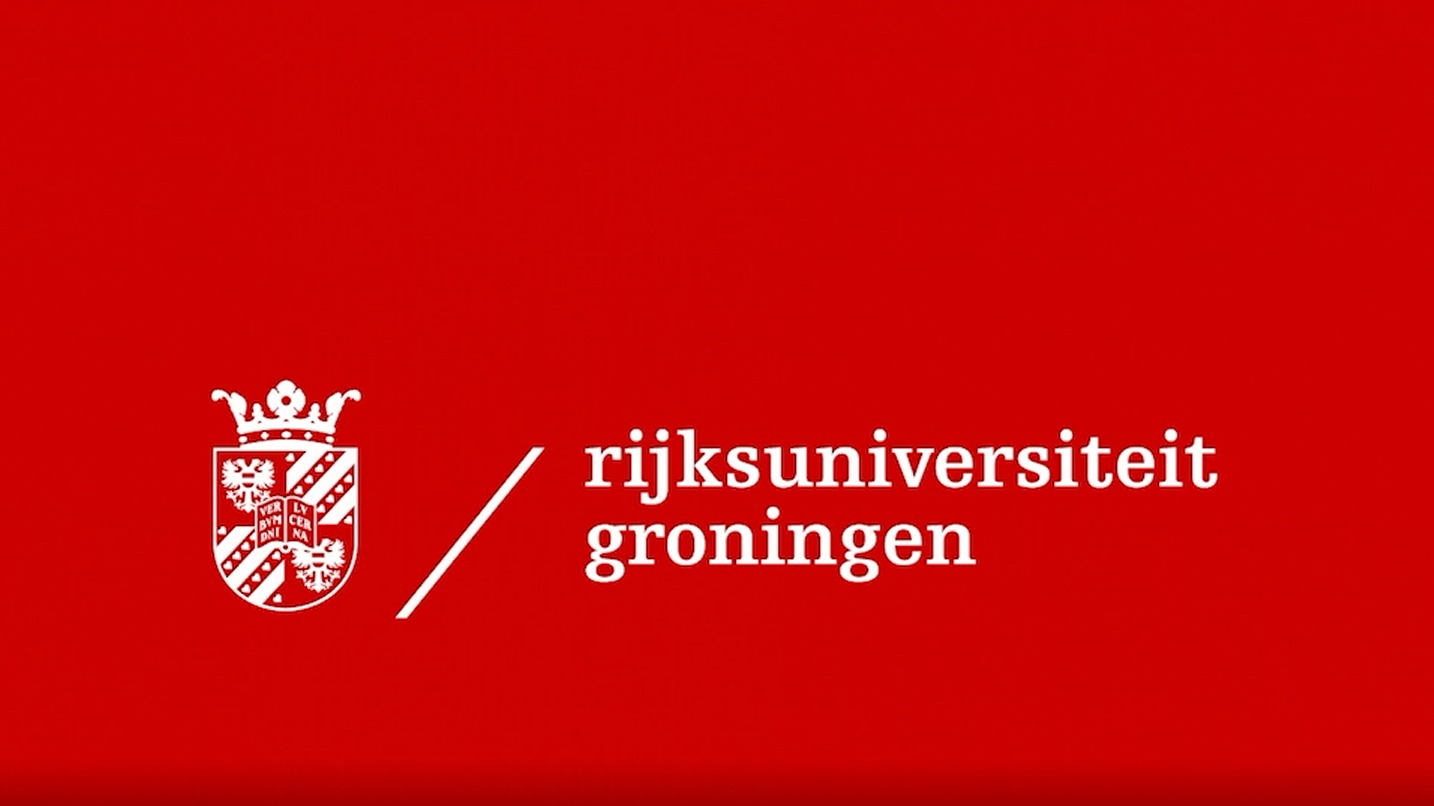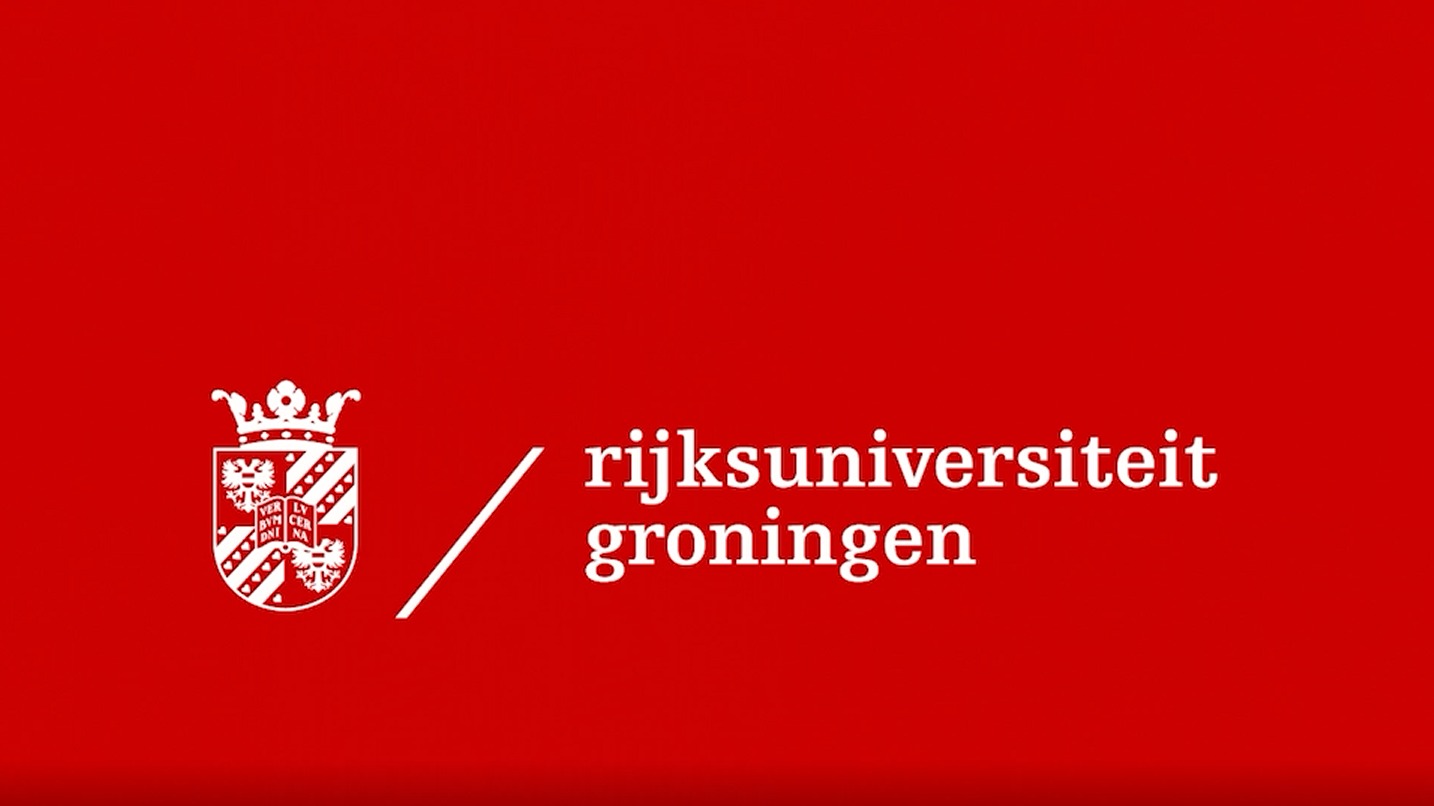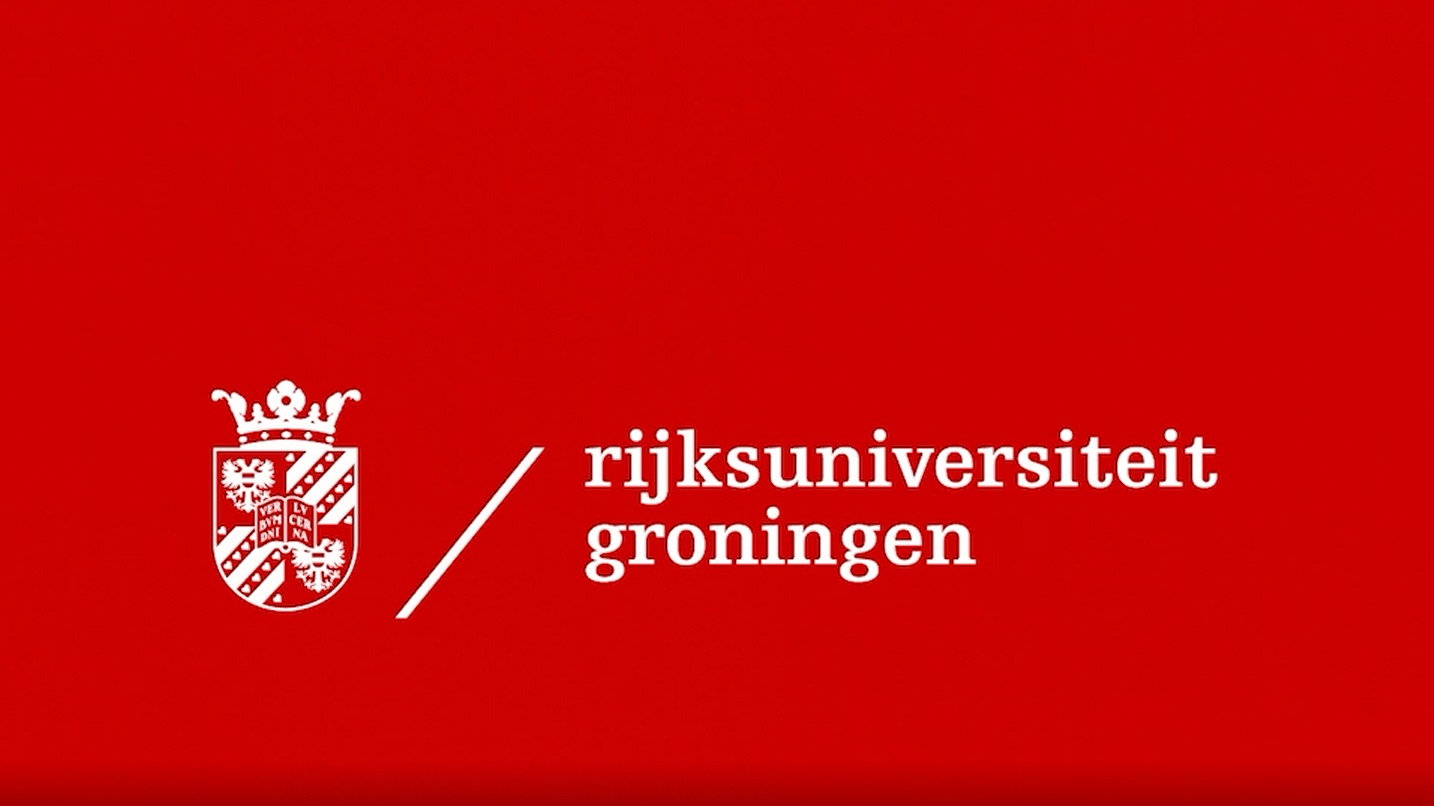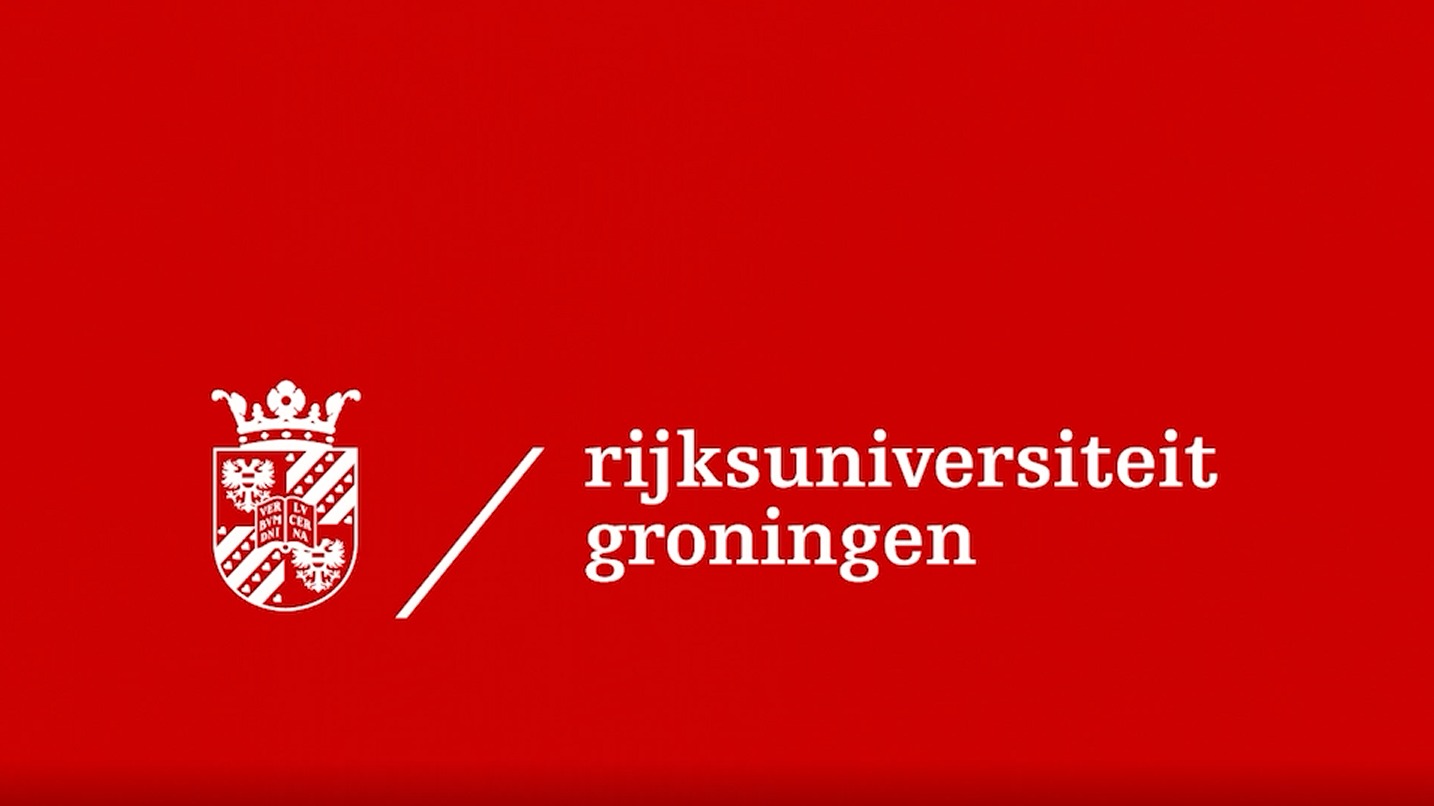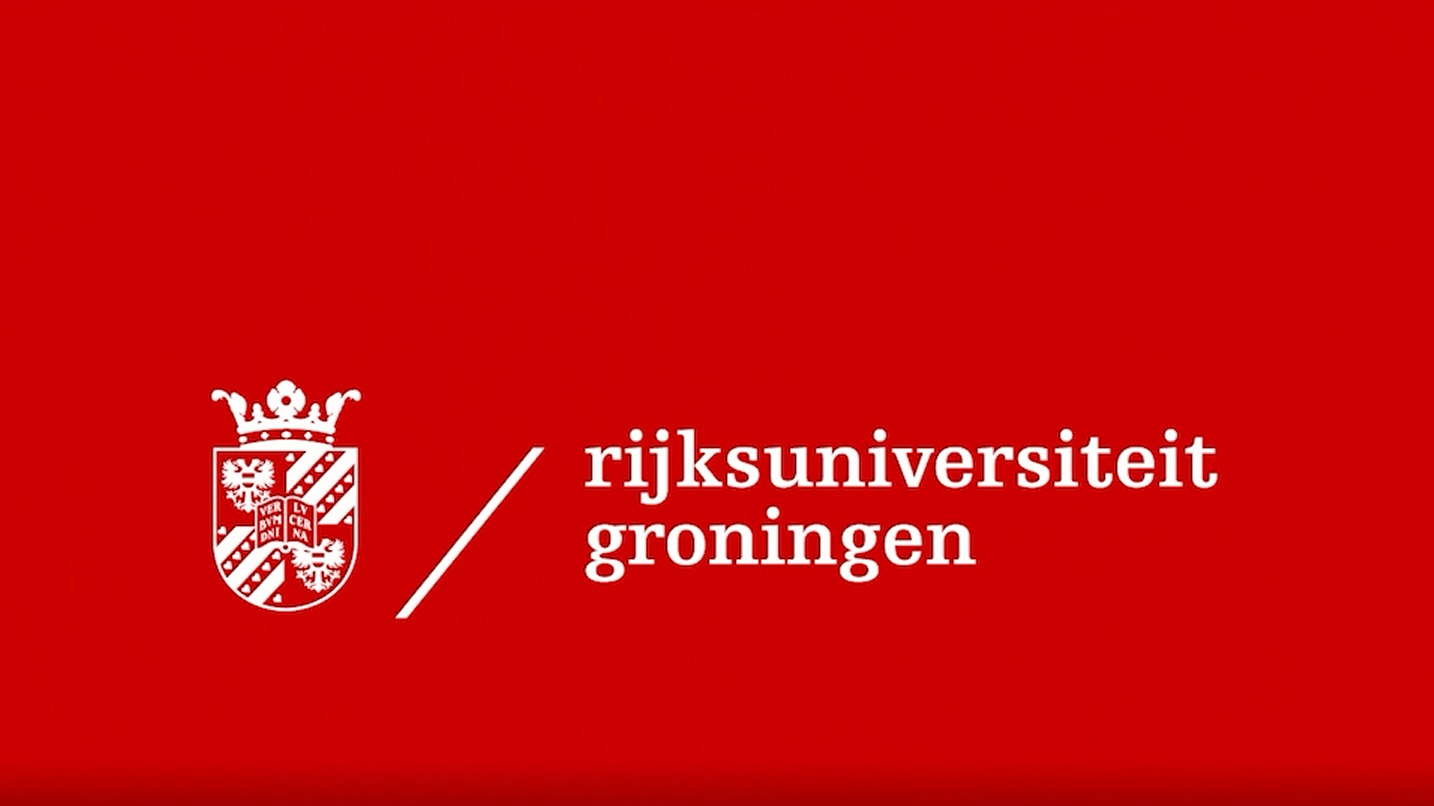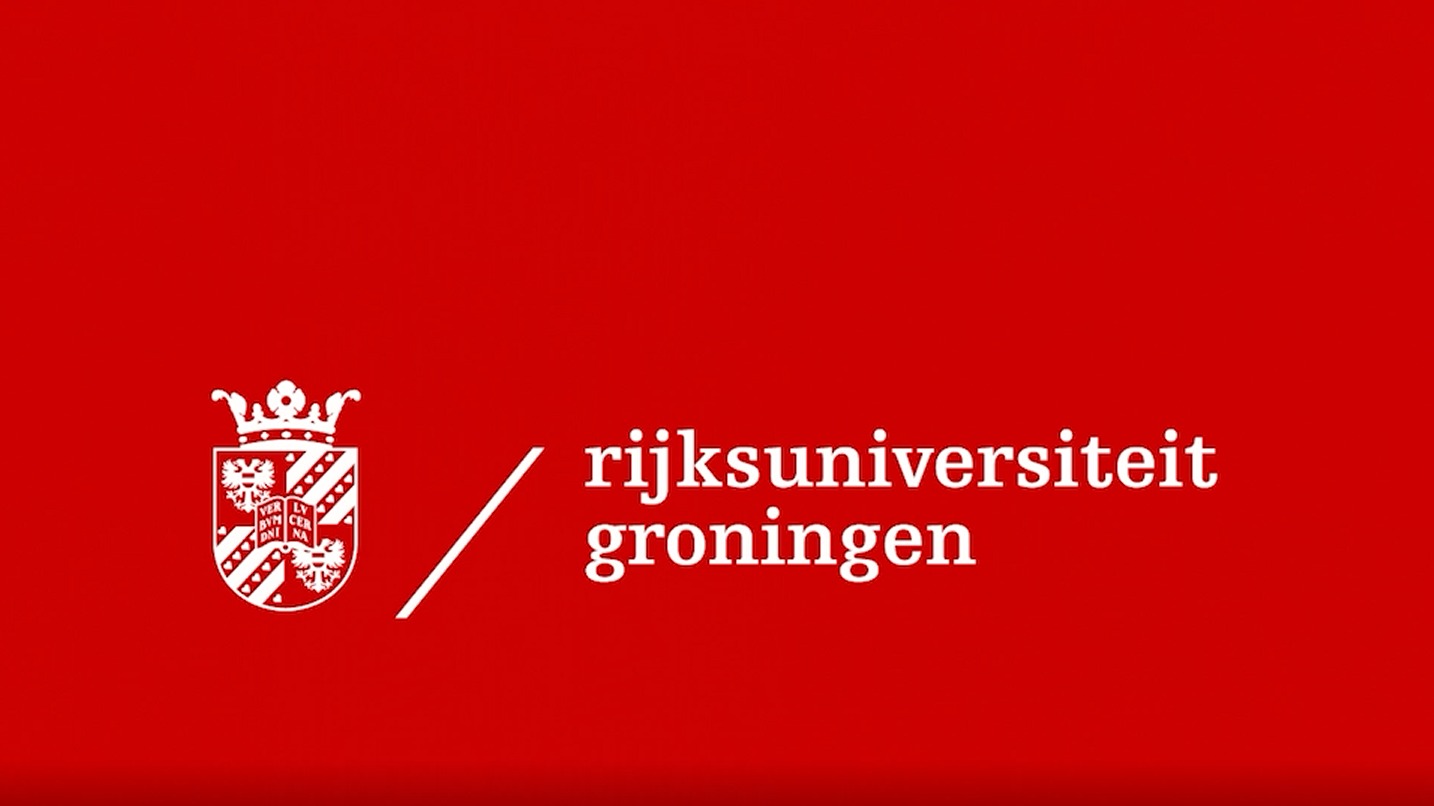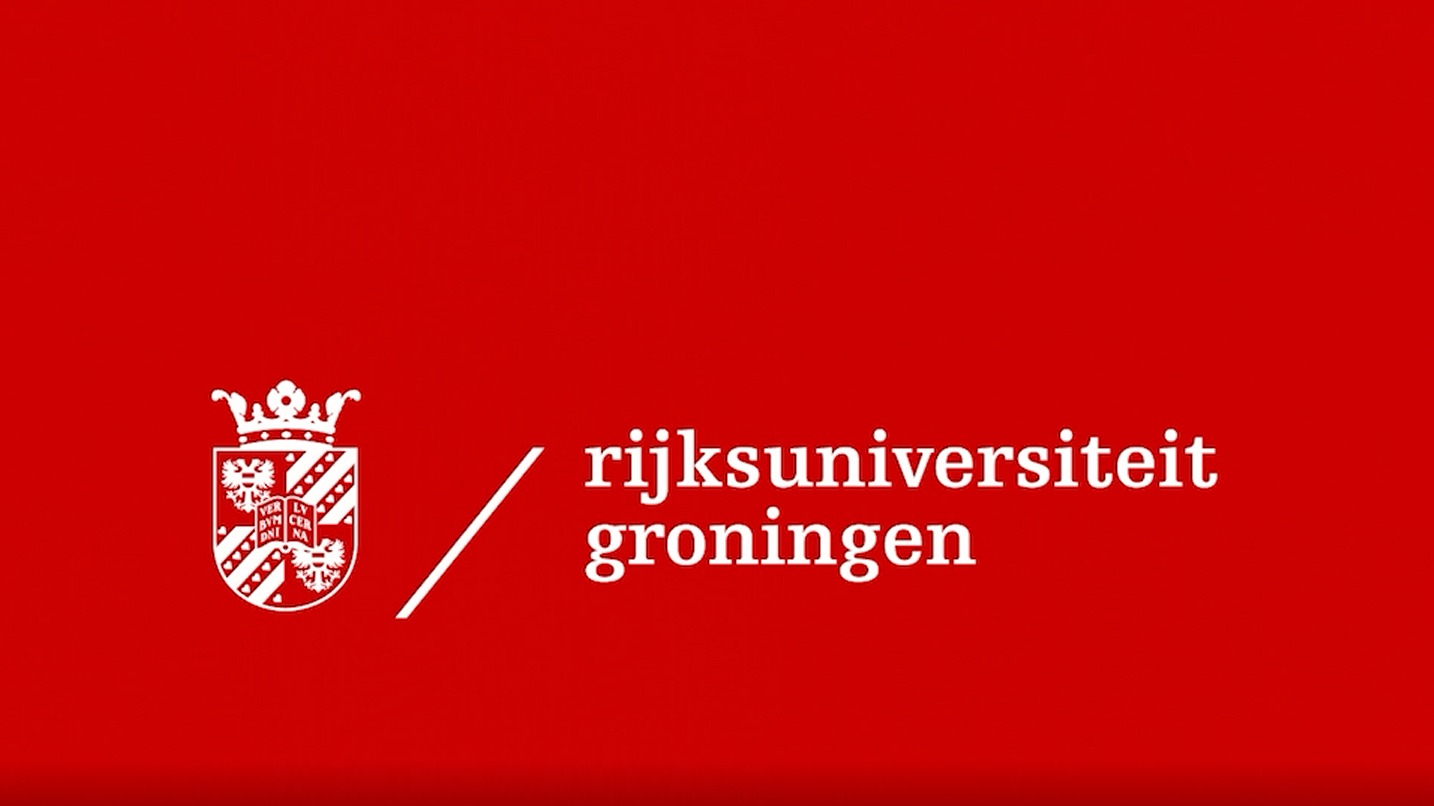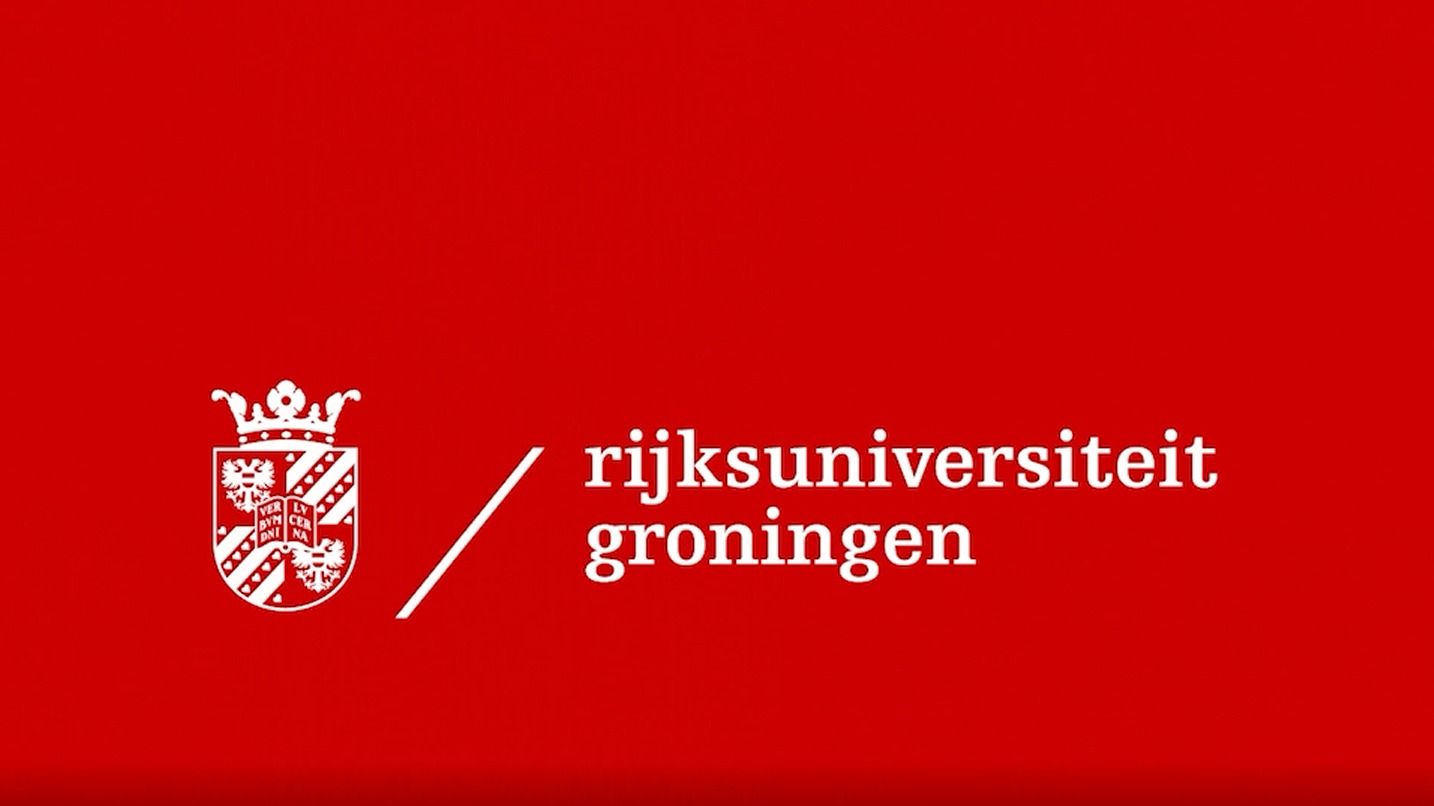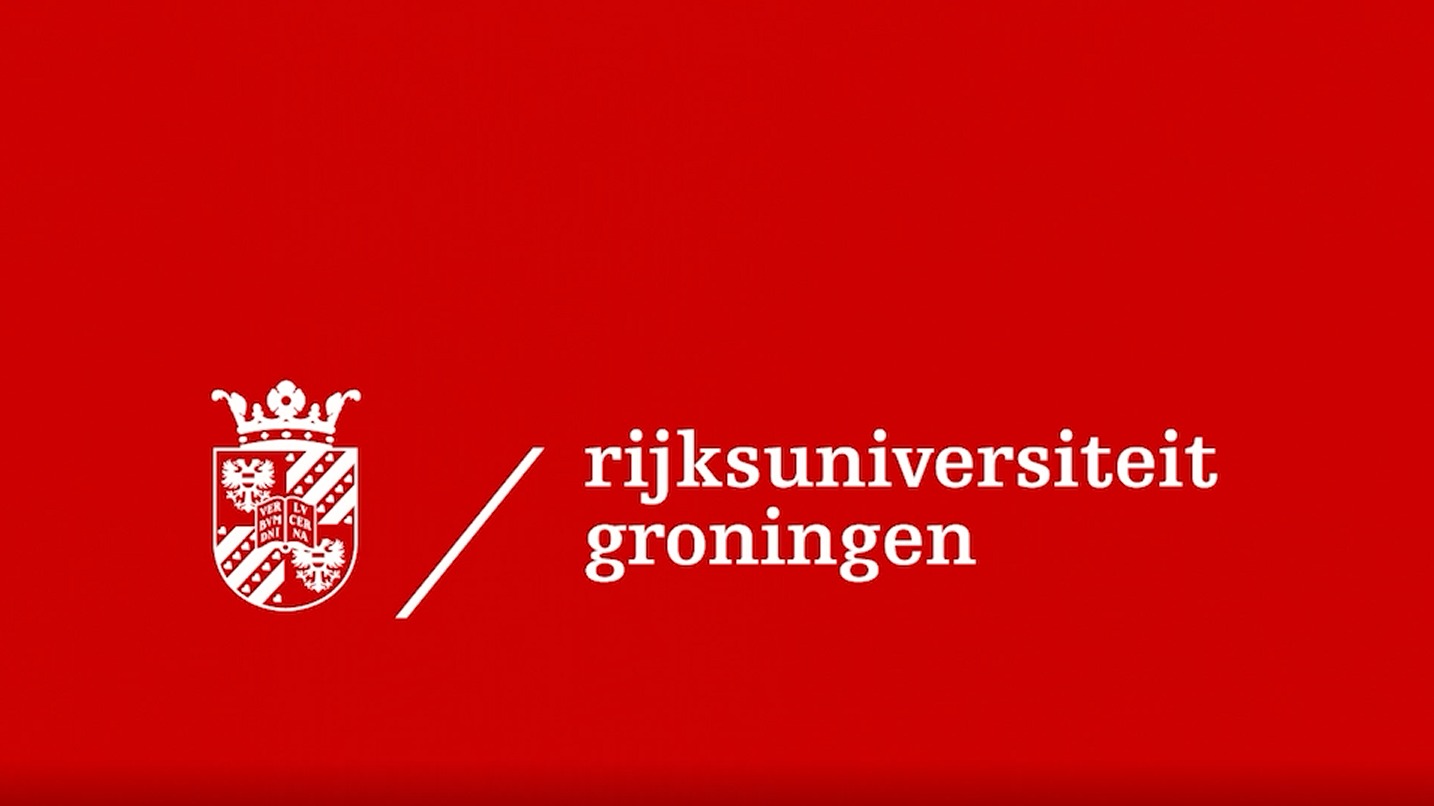De vorige editie: UG Best Practice in Teaching & Learning Award
Alle 11 genomineerde best practices waren heel gevarieerd, uitdagend en innovatief, aldus de selectiecommissie. We feliciteren Marc Hertogh van de Faculteit der Rechtsgeleerdheid met het winnen van de Best Practice in Teaching & Learning Award met zijn cursus "Seminar Policy Analysis" en de runners-up Tamás Görbe van de Faculty of Science and Engineering en dr. Tassos Sarampalis en Laurent Krook van de Faculteit Gedrags- en Maatschappijwetenschappen.
De uitreiking en openingsceremonie
Je kan via de onderstaande video de ceremonie bekijken!
Winnaars van de Best Practice in Teaching & Learning Award 2023
1e prijs: Rechten
Teaching team: Prof. dr. Marc Hertogh
Course title: Seminar Policy Analysis
Best practice: Onderwijsbeleidsanalyse in de praktijk: studenten geven advies aan de Tweede Kamer
Recht in de praktijk en inzetbaarheid zijn twee van de belangrijkste speerpunten van onderwijsvernieuwing aan de Faculteit Rechtsgeleerdheid. Dit zijn dan ook de belangrijkste Best Practices in het seminaar ‘Policy Analysis’ van Marc Hertogh, hoogleraar rechtssociologie.
De studenten namen deel aan een actueel totstandkomingsproces voor nieuwe wetgeving binnen de Tweede Kamer. Anders dan in andere jaren, waarin studenten zelf een fictief beleidsprobleem bedachten, werd er dit jaar een echt probleem gebruikt. Studenten stapten in de lopende wetgevingsprocedure voor de nieuwe Wet bescherming klokkenluiders. De studenten stelden beleidsadviezen op voor de leden van de Tweede Kamer en woonden in Den Haag een rondetafelbijeenkomst met Kamerleden bij. Zo kregen ze een idee van hoe beleidsvorming werkt en hoe hun toekomstige werkveld eruit zou kunnen zien. De combinatie van deze praktijkgerichtheid met student-presentaties, die van peer-feedback voorzien werden, en zowel strakke als dynamische deadlines zorgde voor een zeer interactieve en dynamische leeromgeving. Uiteindelijk is een aantal van de aanbevelingen van de studenten verwerkt in de wetgevingsprocedure en meegenomen in de behandeling van de wet in de Tweede Kamer. De studenten hebben dus tijdens hun leerervaring daadwerkelijk maatschappelijke invloed kunnen uitoefenen.
2e prijs: Science and Engineering
Teaching team: Dr. Tamás Görbe
Best practice: Interactieve kennisclips
Waarom maak jij kennisclips voor je vakken? Hoe maak je die interessant? Wat zijn de mogelijke voor- en nadelen? Hebben studenten echt baat bij deze clips? En wat doe je dan nog tijdens de colleges?
Dit zijn slechts een paar voorbeelden van vragen die collega's mij stellen als ze horen dat ik interactieve video's voor mijn studenten maak. Ik zal deze en nog een paar andere vragen beantwoorden om je te helpen je vakken te herontwerpen en de betrokkenheid van studenten te vergroten.
3e prijs: Gedrags- en Maatschappijwetenschappen
Teaching team: Dr. Tassos Sarampalis en Laurent Krook, MSc
Course title: Research Methods: Theory and Ethics
Best practice: Studentgericht beoordelingsprocedure
Het vak ‘Onderzoeksmethoden: theorie en ethiek’ van de afdeling Psychologie wordt elk jaar door 700 studenten gevolgd. De docenten begrijpen dat een vak over onderzoeksmethoden lastig kan zijn voor studenten, maar zien dit juist als een uitdaging. Ze willen studenten motiveren en voor iedere student relevant zijn. De manier waarop ze dit doen is complex, maar is gestoeld op de volgende basiswaarden:
-
Communicatie (helder, persoonlijk, voortdurend, relevant)
-
Vrijheid (studenten kunnen zelf kiezen wat ze lezen, welke opdrachten ze uitvoeren, naar welk cijfer ze streven)
-
Respect (discussie wordt gewaardeerd en er wordt rekening gehouden met verschillende behoeften en interesses)
-
Betrokkenheid en interactiviteit (wekelijkse communicatie tussen studenten en docenten)
-
Relevantie (het materiaal is bruikbaar voor iedereen, ongeacht de interesses)
Deze waarden zijn terug te vinden in de gebruikte didactiek. Er zijn wekelijkse opdrachten om voortdurende betrokkenheid te stimuleren, de docenten gebruiken diverse scaffolding-strategieën en organiseren een facultatieve Journal Club. Ook in de beoordelingsprocedure komen de waarden terug. Studenten kunnen via een schema van specifications grading zelf bepalen naar welk cijfer ze streven. Dit sluit aan op de waarde van vrijheid.
De waarden waarop dit vak is gebaseerd, zijn onmisbaar in studentgericht onderwijs, en de wekelijkse opdrachten sluiten aan op de bevindingen uit onderwijskundig onderzoek. Bovendien biedt het vak een context waarbinnen psychologische onderzoeksmethoden (maatschappelijk) relevant, interessant, nuttig en aantrekkelijk zijn. Daarom zien wij dit vak als een best practice op het gebied van leren en onderwijzen.
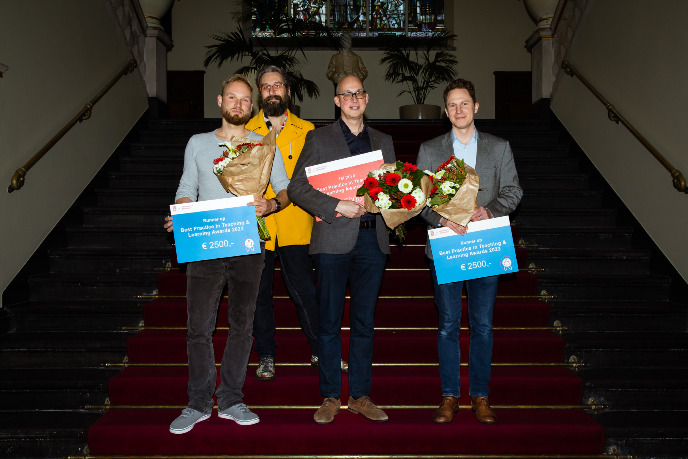
Nominaties voor Best Practice Award 2023
De reeks genomineerde praktijken varieert van schilderoefeningen in geluidstechnologie tot een realistische simulatie van het maken van wetgeving. Onderwijsteams presenteren hun ideeën in korte video's, beschikbaar hieronder. Het is een kans om de genomineerden te ontmoeten, meer te lezen over hun praktijk en geïnspireerd te raken.
University College Groningen
Teaching team: Dr. Lieuwe Zijlstra
Course title: Young Scientists at UCG
Best practice: Evidence-based versie van de onderzoeksstage
Het in 2019 ontwikkelde 'Young Scientists at UCG' is een evidence-based versie van de onderzoeksstage, waarin methodologieën vanuit verschillende disciplines worden ingezet om op basis van blended learning studenten te helpen het beste uit zichzelf te halen. Tijdens de stage worden studenten lid van de Experimental Philosophy Lab Group, die speciaal is opgezet om studenten een structuur van samenwerking te bieden die hun wetenschappelijke ontwikkeling ten goede komt. Studenten worden gestimuleerd om te denken als onderzoekers en zich bezig te houden met alle aspecten van het onderzoekproces, en daarbij de kennis en vaardigheden te gebruiken die ze in andere vakken hebben opgedaan: literatuuronderzoek, het ontwikkelen van een hypothese, experimenteel ontwerp, het verzamelen en analyseren van data, het schrijven van een manuscript en het houden van een presentatie tijdens een (inter)nationaal congres.
De studenten werken in een onderzoeksteam dat wetenschappelijk en maatschappelijk relevant onderzoek uitvoert waarin filosofie en empirische wetenschappen samenkomen. Ze denken na over de grenzen van disciplines, voeren interdisciplinair onderzoek uit, werken internationaal samen met studenten en wetenschappers, organiseren lab meetings, denken kritisch na, werken zelfstandig en nemen verantwoordelijkheid voor hun leerproces. De stage-studenten hebben hun onderzoek al gepresenteerd aan verschillende faculteiten van wetenschappelijke instellingen, waaronder de RUG, de universiteiten van Utrecht, Amsterdam, Granada en Yale, en tijdens onderzoeksbijeenkomsten aan Harvard/MIT – passend bij hun kwalitatief hoogstaande onderzoek. De stages zijn weliswaar afgestemd op het UCG-programma, maar kunnen ook prima aan andere faculteiten worden uitgevoerd.
Theologie en Religiewetenschappen
Teaching team: Prof. dr. Marjo Buitelaar, Dr. Jelle Wiering, Dr. Brenda Bartelink en Dr. Brenda Mathijssen
Course title: Religion, Diversity and Identity
Best practice: Etnografisch onderzoek naar hedendaagse multiculturele steden
In het vak ‘Religie, Diversiteit en Identiteit’ wordt de rol van religieus pluralisme in de “superdiverse” stad bestudeerd. Om te beginnen maken de studenten kennis met de theoretische kaders waarbinnen pluralisme en diversiteit in de godgeleerdheid worden bestudeerd, evenals met de opkomst van nieuwe vormen van spiritualiteit en religie in Europa en Noord-Amerika. Vervolgens wordt ingezoomd op etnografisch onderzoek naar hedendaagse multiculturele steden. Studenten bestuderen hoe verschillende factoren elkaar beïnvloeden tijdens het opbouwen van een gezamenlijk betekenisvol bestaan door kleine, versnipperde, economisch gedifferentieerde en juridisch gelaagde groepen stadsbewoners met verschillende culturele/religieuze achtergronden en transnationale netwerken. Na een reeks voorbereidende colleges waarin deze kwesties worden besproken, gaan de studenten in kleine groepjes met een aantal begeleiders een week lang etnografisch veldwerk verrichten in een grote stad in de Randstad.
Filosofie
Teaching team: Prof. dr. Martin Lenz
Course title: Structured Questions
Best practice: Stimuleren van actief zelfstudie en leren
Als je studenten vraagt of ze vragen hebben over een bepaalde tekst, is het antwoord vaak een pijnlijke stilte. Het is lastig om toe te geven dat je in de war bent. Vragen stellen is cruciaal voor het leren. Maar hoe dat moet, wordt vrijwel nooit uitgelegd. Door mijn studenten te leren vragen te structureren en analyseren, probeer ik de volgende dingen te bereiken:
-
Schaamte tegengaan door aan te geven dat eerlijke vragen verwarring vereisen;
-
Laten zien hoe verwarring helpt bij het onderbouwen van een vraag door studenten precies te laten uitleggen wat (welk tekstdeel) ze precies verwarrend vinden;
-
Laten zien dat verwarring vaak het gevolg is van (niet uitkomende) verwachtingen van de lezer;
-
Uitleggen hoe dergelijke verwachtingen kunnen worden geanalyseerd als verborgen theoretische aannames;
-
Studenten laten inschatten hoe mogelijke antwoorden eruit zouden kunnen zien, bijvoorbeeld door te kijken naar hoe aannames in de tekst verschillen van hun eigen aannames.
Hoewel actief leren wordt gestimuleerd, is voor de meeste van deze stappen geen nieuwe informatie nodig, maar moeten studenten enkel leren begrijpen hoe hun verwarring ontstaat. De studenten worden dan ook gestimuleerd een dialoog aan te gaan met zowel hun eigen verborgen aannames als met anderen, bijvoorbeeld door te praten over hoe hun achterliggende aannames wellicht verschillen. Deze aanpak is ontworpen om zelfstudie en uitwisseling te stimuleren en studenten te laten profiteren van het in aanraking komen met een verscheidenheid aan aannames.
Ruimtelijke Wetenschappen
Teaching team: Dr. Frans Sijtsma en Prof. dr. Dimitris Ballas
Course title: Scientific Reading, Debating and Reflecting
Best practice: Lezen en bespreken van een selectie van gecureerde boeken
De faculteit Ruimtelijke wetenschappen nomineert het vak ‘Scientific Reading, Debating and Reflecting’ (SRDR) binnen de researchmaster Spatial Sciences voor de Best Practice Award. Dit vak heeft een uniek format: het beslaat niet één specifiek blok, zoals alle andere vakken, maar is uitgespreid over het gehele collegejaar. Researchmasterstudenten kunnen zelf hun eigen programma ontwerpen en de vakken volgen die zijzelf interessant vinden. Het vak SRDR biedt de studenten vaste moment om terug bij elkaar te komen en hun ervaringen uit te wisselen. SRDR heeft dan ook een speciale plek in het curriculum; binnen het vak maken studenten samen een proces van wetenschappelijke groei door.
De studenten krijgen een leeslijst aangereikt met boeken over economie, antropologie, duurzame ontwikkeling en sociale ongelijkheid. De besprekingen op college bieden studenten de kans om hun gedachten en ideeën hierover te delen. Dit heeft geresulteerd in vele diepgaande discussies, verbondenheid tussen studenten, en een geweldige onderwijssfeer die niet te vergelijken was met enig ander vak. Het vak wordt gedurende het jaar ingezet als een ontwikkelinstrument, waarbinnen jonge onderzoekers hun ervaringen kunnen delen en theorie kunnen linken aan praktijk.
Campus Fryslân
Teaching team: Dr. Vass Verkhodanova
Course title: Speech Sounds
Best practice: Inspireren van een diverse pool van studenten om diepe, genuanceerde inzichten te verwerven in complexe fenomenen
Het vak ‘Speech Sounds’, dat een centrale plein inneemt binnen de masteropleiding Voice Technology, bevindt zich op het snijvlak tussen fonetiek/fonologie en spraaktechnologie. Een belangrijke uitdaging is dat de studenten zeer verschillende achtergronden hebben: van sociale wetenschappen tot informatica en nog andere disciplines.
Docent Vass Verkhodanova lost deze complexe kwestie vakkundig op met zeer innovatieve en praktische benaderingen zoals leren in gemengde groepen, intensieve feedback- en feedforward-protocollen evenals een bereidheid om colleges of delen daarvan ter plekke aan te passen (zonder daarbij de leerdoelen uit het oog te verliezen). Juist daarom is het lastig haar prestaties samen te vatten. Voor Vass is er immers geen simpel 'recept' voor succes; het draait allemaal om haar mindset als docent. Een mindset waarin wetenschappelijke nauwkeurigheid samenkomt met passie voor het onderwerp en vooral liefde voor het leren. Vass beseft dat het bereiken van leerdoelen geen kwestie is van het afvinken van een lijstje in een studiehandleiding, maar juist draait om het inspireren van studenten opdat ze een diep, genuanceerd inzicht in complexe fenomenen verkrijgen – inzicht dat afhankelijk van de achtergrond van de student verschillende schakeringen kan hebben. In essentie gaat het hier over respect voor intellectuele diversiteit en het vermogen te reageren op de behoeften van studenten.
Economie en Bedrijfskunde
Teaching team: Dr. Evelien Croonen en Dr. Michael Wyrwich
Best practice: Small Business & Start-Up Safari
De ‘Small Business & Startup Safari's’ maken deel uit van de master Business Administration, om precies te zijn het profiel Small Business & Entrepreneurship. In onze ‘Safari's’ kunnen studenten leren in de praktijk (‘experiential learning’) in het ‘habitat’ van een aantal kleine zelfstandigen en ondernemers, door een dag met hen mee te lopen. In de loop van een collegejaar hebben we zowel een 'Small Business Safari', waarbij studenten op bezoek gaan bij eigenaars/managers van bestaande bedrijven (in oktober), en een 'Startup Safari', met bezoeken aan eigenaren/managers van jonge ondernemingen (in maart).
Safari's kunnen voor allerlei vakgebieden worden gebruikt, en hebben daarbij drie belangrijke voordelen voor studenten. Ten eerste kunnen ze hun kennis uitdiepen door de theoretische inzichten die ze tijdens hun opleiding hebben opgedaan te vergelijken met inzichten van professionals uit de praktijk. Ten tweede kunnen ze netwerken met deze professionals, bijvoorbeeld voor een studieopdracht, stage of baan. Tenslotte versterken studenten hun onderlinge band door samen een inspirerend ‘leeravontuur’ aan te gaan. Om deze voordelen te bereiken, hebben we de Safari's in een specifieke structuur gegoten. De bedrijfsbezoeken worden gecombineerd met twee plenaire sessies; één voorafgaand aan het bedrijfsbezoek, om studenten kennis te laten maken met het centrale thema, en een sessie na afloop, waarin de studenten kunnen reflecteren op wat ze gezien hebben.
Medische Wetenschappen
Teaching team: Drs. Berdien Kooistra-Akse, drs. Iris van Zuijlen, dr. Hanneke Hoekstra, drs. Catharina Urbach, Evelien Langendijk, dr. Henri Lohr, prof. dr. Marco Cune, en Elly Douma
Course title: Tandheelkunde
Best practice: Team-based learning
Team-Based Learning (TBL) is een bewezen effectieve, activerende werkvorm waarin studenten actief samen leren. In de opleiding Tandheelkunde wordt TBL gebruikt in een vijfweekse theoretische onderwijscyclus. De cyclus begint met een overzicht van de inhoud, uitleg over de verschillende onderwerpen en de beste leermethoden. In de volgende vijf weken vinden verschillende leer- en onderwijsactiviteiten plaats. De cyclus wordt afgesloten met een TBL-sessie onder leiding van een vakdocent en een moderator. Tijdens deze TBL-sessie krijgen studenten inzicht in de mate waarin ze het materiaal beheersen door een toets te maken, eerst individueel en daarna met hun subgroep. De opgedane kennis wordt toegepast in een praktijkopdracht, die de studenten eerst in hun subgroep maken en vervolgens met de andere subgroepen bespreken. Drie of vier dagen na de TBL-sessie leggen de studenten een afsluitende, summatieve kennistoets af.
Door Team-Based Learning als werkvorm krijgen studenten meer inzicht in de stof, leren ze hun kennis toe te passen en moeten ze een actieve houding aannemen. Het biedt de docent de kans complexe theoretische concepten effectief en nog duidelijker uit te leggen. TBL kan dan ook een geschikte werkvorm zijn voor diverse vakken.
Letteren
Teaching team: Dr. Benjamin Leruth en Dr. Léonie de Jonge
Course title: Democratic Innovations
Best practice: Ontwerpen en uitvoeren van een real-world democratische innovatie
Binnen een mastervak over democratische innovatie moeten studenten samen met interne en externe stakeholders een realistische democratische innovatie ontwerpen en uitvoeren om zodoende een bestaand maatschappelijk probleem op lokaal, provinciaal of nationaal niveau aan te pakken. De studenten kiezen zelf het onderwerp. Dit jaar kozen zij de huisvestingscrisis in Groningen.
Voor ze van start gaan met hun experiment, luisteren de studenten eerst naar wetenschappers en professionals van binnen en buiten de universiteit die ervaring hebben in het uitvoeren van democratische innovaties. Vervolgens wordt het cohort onderverdeeld in verschillende 'taskforces'. Elke taskforce is verantwoordelijk voor het ontwerpen en uitvoeren van één element van het democratische experiment (outreach, management, moderation). Elke taskforce houdt een gezamenlijk logboek bij, waarin notities en gedachten over de voortgang van het experiment worden verzameld. Uiteindelijk levert elke taskforce een definitief, gezamenlijk geschreven verslag van 1500 woorden in, waarin wordt gereflecteerd op het experiment (bijv. wat ging er goed, wat ging er verkeerd, wat kon beter). Met het verslag en ontwerp wordt voortgebouwd op een database van democratische innovaties die over de hele wereld plaatsvinden (Participedia).
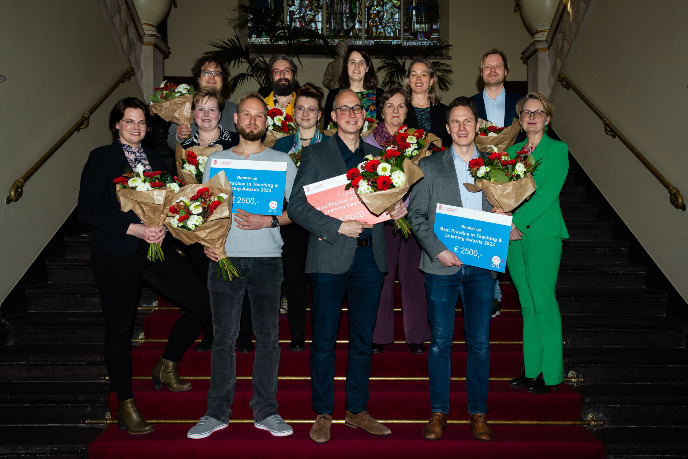
Criteria 2023
Nominaties voor de Best Practice Award (BPA) kunnen alleen worden ingediend door faculteitsbesturen. Het doel van de BPA is het erkennen en waarderen van de docententeams die het onderwijsaanbod blijven innoveren, en zo helpen het onderwijsrepertoire van de RUG te verbreden. Waar we specifiek naar op zoek zijn, lees je in de criteria.
Vorige editie: Best Practice Awards 2022
De Teaching Academy Groningen (TAG) feliciteert de winnaars en alle andere genomineerden met hun inspirerende best practices!
De selectiecommissie heeft haar bevindingen vastgelegd in het juryrapport.
1e prijs: Theologie en Religiewetenschappen
Teaching team: Dr. Erin Wilson, Dr. Tina Otten, Linde Draaisma, Henk van Putten
Course: Climate Change, End Times, Sustainability
Best practice: Preparatory podcasts, real-life discussions in a blended environment
This course focuses on climate change and religion in an interdisciplinary setting. The main goal is to discuss with students what the different theological, religious, philosophical, and spiritual traditions are with regard to climate change and eschatology. The focus lies on the five world religions’ perspectives on these themes, as well as additional philosophical and ethical perspectives. Students learn to develop their own arguments and vision for sustainability and to evaluate different approaches to the climate crisis.
The course achieves these goals by presenting a weekly podcast to students which the teaching team has made together with scholars from many different disciplines, in addition to weekly readings, presentations, and a policy plan and essay where students argue their own perspectives. This course is unique in its combination of topics, a student called it “the most interesting course I have ever followed”, and because of the interdisciplinary background of both the teachers and the students, it was named this “eye-opening course”. The preparatory podcasts together with the real-life discussions provided an accessible and fun blended learning environment that gave students the tools to start thinking about topics they had never even considered before.
2e prijs: Letteren
Teaching team: Elisabetta Costa, Antenor Hallo de Wolf and Bartjan Pennink
Course title: MA International Humanitarian Action
Best practice: Viking simulation
This simulation exercise is based on the Viking 11 simulation exercise, developed by the Folke Bernadette Academy - the Swedish agency for peace, security and, development - in collaboration with Swedish Armed Forces. Moreover, the exercise has been moderated and altered by the NOHA Management assignments during some rounds we did run the simulation.
The simulation exercise takes students to the imaginary country of Bogaland, in which civil war, social stratification, perceived injustice, an unequal provision of public services, and different religious beliefs hold sway over daily functioning of the country. In 2010, a Cease Fire Agreement was signed between warring factions belonging to the chief Bogaland provinces: the Kasurian provinces and the Mida provinces. But don’t be mistaken: to date, 402.000 people are still unaccounted for. These people are not registered in either one of the provinces or neighboring countries. Also, statistics are still very unreliable and many people are still on the move because of the unstable situation that lasts, even despite the CFA.
This unstable situation is what students will be looking into. Students will dive right in when dealing with their first assignment. During this simulation exercise, the pace is high and the situation changes rapidly!
3e prijs: Medische Wetenschappen
Teaching team: N. El-Baz, Dr. M.M.M. Gresnigt, Drs. F. Schuring, Dr. M.J.G. van Heuvelen
Best practice: E-Learning Modules
In the curriculum development of our medical programmes, both student representatives and the programme leaders identified a greater need for extra support in the form of dynamic and adaptive content. In 2016, this led to the start of an e-learning team, which started developing e-learning principles, frameworks, and content.
E-learning opened a new door for learning: microlearning – a form of learning in which small learning units are periodically offered to students. Students can compose personal learning paths, in which the content is tailored to their needs. An e-learning module can be developed in multiple variants, to establish interprofessional interaction. Lecturers can also develop their own e-learning module by means of our own low-threshold authoring tool Versatest. The comprehensive set of tools allows for quizzes, videos, and other forms of content visualization. The modules are very accessible: they work on PCs, tablets, and phones, and most are available in multiple languages. The content is modularly organized so that the revision process can be safeguarded. Furthermore, user data collected from the modules can be used to improve the quality of the courses.
Honours College Award: Economie en Bedrijfskunde
Teaching team: Steffen Eriksen
Course title: Asset Pricing and Capital Budgeting
Best practice: Blended learning
Steffen Eriksen took a completely different direction when it came to fully online teaching. As the coordinator of this course, he would stream his lectures live on Twitch. This provided a whole new layer to interactive teaching and personalization. After the stream ended, the lectures would be edited, and later uploaded on his YouTube channel for students to watch again. All the weekly practicals took place on a customized Discord server Steffen had created, where students would meet online, talk and write to each other, or talk and write with the student assistants who were present on the server as well. The server also served as a contact point between the teachers, coordinator, and students assistants. For the Q&A/review session, he would invite one of the other instructors to join him in the live stream on Twitch, answering the questions from students.
Overall, the course managed to engage the students and made it the favourite course of many, as evident from the recent course evaluations. It has also come to our attention that Steffen has implemented a similar approach in the other course he has been coordinating. He made the best from online teaching, going beyond Blackboard. Integrating the best tools, making the best course has shown himself as one of the best teachers.
University College Groningen
Teaching team: Dr. Chris May
Course title: Biopsychology
Best practice: Student Development of an Open Educational Resource
Biopsychology featured what Chris May called a “Signature Project”, where in a team of 4 — 5, students created, composed, and curated an online portfolio dedicated to an interdisciplinary exploration of a topic of the group’s choice. The Project was to be grounded in neuroscience and incorporate peer-reviewed research.
All Signature Projects were then linked together by the instructor to create an open educational resource (OER). This Signature Project is an example of Open Pedagogy, in which the student is involved in creating an OER for their own and others’ benefit.
General Requirements:
- The Project must integrate at least two disciplines, with one of them being neuroscience. The other(s) can be anything else!
- The Project will be hosted online using a platform of the student’s choice, possible examples include Google sites, weebly, notion.so, padlet, wordpress, webador, and wix.
- Each student must write 1300 – 1700 words, excluding references. Thus, the length of the Signature Project for a team of 4 will be 5200 – 6800 words and for a team of 5 will be 6500 – 8500 words.
- Each student must review at least two peer-reviewed research articles in the Project, and will present one to the class.
Campus Fryslan
Teaching team: Dr. Sepideh Yousefzadeh
Course title: Responsible Activism and Global Health
Best practice: The use of art and problem-based learning
The course Responsible Activism and Global Health is a 2nd-year course offered under the Responsible Humanity major of the bachelor programme Global Responsibility and Leadership at the University College Fryslân. It is an innovative course where problem-based learning is at the core to stimulate active and dynamic interactions among students, which is supported by peer-to-peer feedback and team exercises. The lecturer carefully monitors the learning process and interferes when required rather than passively providing knowledge. This unique pedagogical approach provides students space and encouragement to be the leaders of their own learning process and be creative in planning, contributing to, and finalizing assignments.
The creative process is further supported by the use of “art” in a final assignment, where students are invited to use art (e.g. visual arts, performance arts) for a social cause where they can exercise responsible activism. Workshops on how to use arts in this process are integrated in the course via the involvement of professional local artists. The course is therefore both inter and transdisciplinary with the integration of the disciplines of arts and global health, and the participation of non-academic experts.
Ruimtelijke Wetenschappen
Teaching team: Viktor Venhorst and Daniele Mantegazzi
Course title: Statistics
Best practice: Stimulating student belongingness
The Faculty of Spatial Sciences is happy to nominate the statistics courses taught by Viktor Venhorst and Daniele Mantegazzi. Our bachelor students follow two statistics courses during their first and second years. The students consider the statistics courses quite demanding; especially, during the previous COVID-19 periods. Nevertheless, the lecturers are able to provide clear and well-structured course designs for their students resulting in consistently good course evaluations.
Despite statistics being a challenging course, due to its excellent management, communication, and integration of various elements these courses are a great example of what a best teaching practice can be. Furthermore, the teachers understand that during busy and challenging (COVID-19) times students need extra stimulation, encouragement, and support. An example of this is sending students personal emails when they passed their statistics course to congratulate them after a resit. Active use of Nestor to remind students of attending the lectures or to apply for computer practicals or by sharing ‘golden tips’ are highly appreciated.
Filosofie
Teaching team: Dr. T.M. Nawar
Best practice: Time travel through humour (and reading primary sources)
Tamer Nawar is a devoted and highly skilled lecturer. He stimulates students to think, and then think again, using his own philosophical acumen and attention to crucial detail as an example. The practice for which we have wanted to award him the Best Practice in Teaching & Learning award expresses this general teaching skill. Over the past years, Tamer has been the initiator and guide of a conversion of our history of philosophy teaching, towards the study of primary texts by close-reading and classroom interactions; this has led to a universally acclaimed reorientation in our bachelor curriculum.
Rather than using secondary sources to provide pre-processed and broad overviews, Tamer teaches by familiarizing the students with the words that were written by ancient philosophers themselves, thereby opening a world of thought that to our modern mindset is alien, almost other-worldly, while at the same time universally human and recognizable. He provides a point of entry to the often complicated thought processes of people who lived many centuries ago. An indispensable method for this experience of time-travel is, perhaps surprisingly, humour: by showing how the ancients were playful in their thinking, how their puzzlement and curiosity are deeply funny, he brings back to life even the most austere and venerable thinkers of old.
Theologie en Religiewetenschappen
Teaching team: Dr. Erin Wilson, Dr. Tina Otten, Linde Draaisma, Henk van Putten
Course: Climate Change, End Times, Sustainability
Best practice: Preparatory podcasts, real-life discussions in a blended environment
This course focuses on climate change and religion in an interdisciplinary setting. The main goal is to discuss with students what the different theological, religious, philosophical, and spiritual traditions are with regard to climate change and eschatology. The focus lies on the five world religions’ perspectives on these themes, as well as additional philosophical and ethical perspectives. Students learn to develop their own arguments and vision for sustainability and to evaluate different approaches to the climate crisis.
The course achieves these goals by presenting a weekly podcast to students which the teaching team has made together with scholars from many different disciplines, in addition to weekly readings, presentations, and a policy plan and essay where students argue their own perspectives. This course is unique in its combination of topics, a student called it “the most interesting course I have ever followed”, and because of the interdisciplinary background of both the teachers and the students, it was named this “eye-opening course”. The preparatory podcasts together with the real-life discussions provided an accessible and fun blended learning environment that gave students the tools to start thinking about topics they had never even considered before.
Letteren
Teaching team: Elisabetta Costa, Antenor Hallo de Wolf and Bartjan Pennink
Course title: MA International Humanitarian Action
Best practice: Viking simulation
This simulation exercise is based on the Viking 11 simulation exercise, developed by the Folke Bernadette Academy - the Swedish agency for peace, security and, development - in collaboration with Swedish Armed Forces. Moreover, the exercise has been moderated and altered by the NOHA Management assignments during some rounds we did run the simulation.
The simulation exercise takes students to the imaginary country of Bogaland, in which civil war, social stratification, perceived injustice, an unequal provision of public services, and different religious beliefs hold sway over daily functioning of the country. In 2010, a Cease Fire Agreement was signed between warring factions belonging to the chief Bogaland provinces: the Kasurian provinces and the Mida provinces. But don’t be mistaken: to date, 402.000 people are still unaccounted for. These people are not registered in either one of the provinces or neighboring countries. Also, statistics are still very unreliable and many people are still on the move because of the unstable situation that lasts, even despite the CFA.
This unstable situation is what students will be looking into. Students will dive right in when dealing with their first assignment. During this simulation exercise, the pace is high and the situation changes rapidly!
Gedrags- en Maatschappijwetenschappen
Teaching team: Dr R. van der Ploeg and T. Kretschmer
Course title: Youth and Social Development
Best practice: Flipped classroom
This course has successfully implemented the idea of the flipped classroom. The intention is that students will actively engage with the material, creating a good understanding of the subject matter and promoting their academic attitude. This has been successful. Another important aspect is that the course has made an important contribution to the realization of connection among students and between students and the program. This is extremely important, particularly under corona conditions, both for student learning and for their well-being.
Economie en Bedrijfskunde
Teaching team: Steffen Eriksen
Course title: Asset Pricing and Capital Budgeting
Best practice: Blended learning
Steffen Eriksen took a completely different direction when it came to fully online teaching. As the coordinator of this course, he would stream his lectures live on Twitch. This provided a whole new layer to interactive teaching and personalization. After the stream ended, the lectures would be edited, and later uploaded on his YouTube channel for students to watch again. All the weekly practicals took place on a customized Discord server Steffen had created, where students would meet online, talk and write to each other, or talk and write with the student assistants who were present on the server as well. The server also served as a contact point between the teachers, coordinator, and students assistants. For the Q&A/review session, he would invite one of the other instructors to join him in the live stream on Twitch, answering the questions from students.
Overall, the course managed to engage the students and made it the favourite course of many, as evident from the recent course evaluations. It has also come to our attention that Steffen has implemented a similar approach in the other course he has been coordinating. He made the best from online teaching, going beyond Blackboard. Integrating the best tools, making the best course has shown himself as one of the best teachers.
Rechten
Teaching team: Aline Klingenberg and Jasper Verstappen
Course title: IT Law Active Learning Classroom
Best practice: Active learning through community education
Changes in IT law mean that, in addition to a solid knowledge base, an IT lawyer must also be able to interpret technological and social developments. Future skills are indispensable. That is why we have chosen the principle of active learning through community education.
The Privacy & Data Protection master's course is one of the first users of the Active Learning Classroom. This core course provides a solid legal foundation. Through the special lecture room (TEO), current developments are discussed in an open atmosphere, and assignments from practice are made. In Law, ICT, and the Circular Economy, students are challenged to apply knowledge in a technological context. Weekly group presentations, combined with peer feedback, make dialogue a common thread running throughout the course. A final paper lets students apply their knowledge and insights from these conversations to innovative technology and socially relevant questions.
Students feel involved in their education and current social developments through this education. This best practice contributes to the responsible development of emerging technologies and ensures that the programme is ready for the demands of the future. The growing number of IT Law alumni in image-defining positions shows that this program plays an important social role.
Science & Engineering
Teaching team: Prof. dr. Liesbeth Veenhoff, Anton Steen, Maarten Linskens and others
Course title: Molecular Biology of Ageing and Age related diseases
Best practice: Integration of scientific writing, active listening and peer feedback
Ageing can be defined as the gradual loss of the ability of the organism to maintain homeostasis. This course focuses on the molecular and cellular mechanisms by which tissue and organ function deteriorate and homeostasis fails, resulting in ageing and age related disease. The course evaluates to what extent the up-to-date knowledge on molecular biology provides opportunities for interventions, also when considering what is learned from evolutionary theories of ageing. It presents the model systems and experimental strategies that are used in ageing research.
This course is supported by a team of specialists in different fields of ageing that will provide lectures and reading material. The course will be further supported by materials from an online course "Why do we age? The molecular mechanisms of ageing". The course not only gives an overview of the research field of ageing but also teaches scientific writing, active listening and giving feedback to peers.
Medische Wetenschappen
Teaching team: N. El-Baz, Dr. M.M.M. Gresnigt, Drs. F. Schuring, Dr. M.J.G. van Heuvelen
Best practice: E-Learning Modules
In the curriculum development of our medical programmes, both student representatives and the programme leaders identified a greater need for extra support in the form of dynamic and adaptive content. In 2016, this led to the start of an e-learning team, which started developing e-learning principles, frameworks, and content.
E-learning opened a new door for learning: microlearning – a form of learning in which small learning units are periodically offered to students. Students can compose personal learning paths, in which the content is tailored to their needs. An e-learning module can be developed in multiple variants, to establish interprofessional interaction. Lecturers can also develop their own e-learning module by means of our own low-threshold authoring tool Versatest. The comprehensive set of tools allows for quizzes, videos, and other forms of content visualization. The modules are very accessible: they work on PCs, tablets, and phones, and most are available in multiple languages. The content is modularly organized so that the revision process can be safeguarded. Furthermore, user data collected from the modules can be used to improve the quality of the courses.

